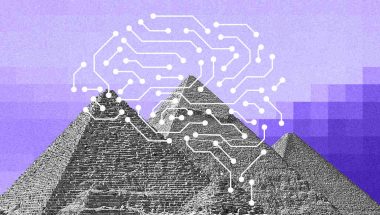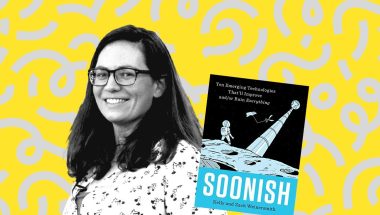- | 9:00 am
The UAE is investing in its people. Can it deliver on the promise?
From introducing AI as a mandatory subject in schools to offering training and placement for Emiratis in advanced industries, the UAE is building its workforce.

As its economy undergoes rapid transformation, the UAE is placing its bets on its most critical asset—its people. With a strategy to develop a future-ready workforce, the UAE has a broad set of national initiatives to equip Emiratis with the skills, knowledge, and pathways to lead the nation.
At the heart of this effort is the Nafis program, designed to increase Emirati employment in the private sector. Nafis enabled over 10,500 citizens to secure private-sector roles in 2023 alone, progressing towards a national target of 24,000 hires. Backed by a $1.74 billion budget and regulatory frameworks that mandate Emirati hires in businesses with over 50 employees, the program reflects both the government’s will and policy clarity.
This renewed push for Emiratisation aims to increase the number of Emiratis in key private-sector roles, supporting the UAE’s long-term goal of a knowledge-based, innovation-driven economy.
Still, translating this ambition into daily corporate practices remains a challenge, one that private-sector leaders recognize.
Diana Geldenhuys, CEO of gulfHR, pointed out that “policy is only half the equation. Implementation requires operational readiness, structured data, and mindset alignment. What we often see is that companies understand the ‘what’ of Emiratisation but lack the systems and workflows to manage the ‘how.’”
To close the gap, Geldenhuys adds that companies must move beyond compliance checklists and adopt systems integrating nationalization targets into their recruitment, onboarding, and performance workflows. “This means tracking Emirati hiring not as a separate initiative, but as part of the core workforce strategy – including retention pathways, growth KPIs, and learning outcomes.”
TRAINING AND PLACEMENT IN ADVANCED INDUSTRIES
The Make it in the Emirates initiative is a key pillar of the UAE’s economic diversification strategy. By aiming to grow the industrial sector’s GDP contribution from $36.18 billion to $81.63 billion by 2031, the program catalyzes economic output and employment opportunities for nationals. The accompanying Industrialist Program offers training and placement for 500 Emiratis in advanced industries.
Salama Al Awadhi, Director of National Value Added at the Ministry of Industry and Advanced Technology, affirmed that “the UAE has a wealth of local talent, and the ministry is working hard to identify this talent and promote careers within the private sector.” She added that programs such as Pioneers 4.0 and the Industrialists Career Exhibition, in addition to immediate interviews, offer training programs at some of the country’s leading training centers.
Recognizing the role of emerging technologies in shaping tomorrow’s jobs, the UAE has introduced AI curricula in public schools for children as young as four. These programs cover ethical AI usage, prompt design, and content evaluation—laying the groundwork for digitally fluent future leaders.
In parallel, the Talent Programme is investing $340.38 million in developing vocational competencies in business management, accounting, and tech fields. The Apprentice Programme enhances this by providing in-field training with financial incentives for Emirati youth across sectors.
Geldenhuys emphasized that “technology has a key role in mapping clear career trajectories for Emirati talent, setting custom KPIs aligned with department goals, tracking development through integrated learning management modules, and gathering 360-degree feedback to build meaningful performance reviews.”
AI ENABLEMENT: THE NEXT FRONTIER
The UAE’s AI ambition is not just about infrastructure or investment—it’s deeply tied to developing local capability. Andrew Jackson, CEO of Inception, says the UAE is making a “bold and strategic push to become a global leader in AI—and at the heart of that vision is local talent. At Inception, we see Emirati talent as architects of this vision – playing a critical role in building an AI-driven economy.”
Through initiatives like QudraTech, Jackson adds that Inception is creating pathways for Emiratis to contribute to the AI economy, whether that’s through training, real-world deployment, or cutting-edge research.
He described QudraTech as “an AI enablement platform designed to provide Emiratis with hands-on experience across foundational areas of AI development. From contributing to the JAIS Arabic language model to exploring emerging agentic systems, our program is rooted in real work, not theoretical exercises.”
He added that Inception works closely with Nafis, the Department of Government Enablement, and other stakeholders to ensure “a comprehensive and impactful learning journey for each participant.”
One standout example is Alyazia AlBlooshi, who joined Inception in September 2025 as a management trainee. Jackson noted, “Alyazia quickly emerged as a standout talent and now plays a central leadership role in the QudraTech program.”
Jackson emphasized that AI tools like large language models and autonomous systems are powerful—but their true potential lies in how people use them. “We emphasize human agency, critical thinking, and ethical reasoning—traits essential for the next generation of AI leaders.”
“To us, success isn’t measured solely by job placements, patents, or innovation metrics. It’s measured by how confidently and responsibly Emiratis step into the global AI conversation,” Jackson adds.
THE EDUCATIONAL PUSH
Furthermore, the We the UAE 2031 vision provides a strategic framework for long-term development—focusing on a diversified economy, social well-being, and international engagement. The Ministry of Education is actively engaging students and educators to internalize this vision and their role within it.
Dr. Ahmad Belhoul Al Falasi, Minister of Education, described the campaign as “a pivotal step in our mission to foster a deep understanding of the nation’s aspirations among students while empowering them to recognize their crucial role in realizing these ambitions.” He added, “The Ministry of Education launched introductory workshops to a number of new educators across the country to prepare educational and administrative staff and raise their awareness of the vision.”
BRIDGING THE PUBLIC-PRIVATE GAP
Despite substantial progress, Geldenhuys observed that “there’s progress, but not yet parity.” She noted that the UAE has made progress in championing Emirati talent, and initiatives like Nafis, the Emirati Talent Competitiveness Council, and the Emiratization mandates are building a stronger national workforce.
“These programs go beyond recruitment. They include wage support, structured on-the-job training, and even career counseling. That said, I still see a gap in translating these public policies into meaningful, day-to-day outcomes inside private companies.”
She says technology plays a huge role in this area. “We need systems that don’t just track compliance but actually help HR teams design growth paths, monitor skill-building, and measure the real impact of these initiatives. True collaboration happens when policy isn’t just followed—it’s embedded into how we operate.”
She adds: “The intent is strong, especially from government-led programs. But we need more structured data-sharing, interoperable systems, and co-created upskilling frameworks jointly owned by public and private actors.”
Private companies often struggle to contextualize government training modules into their daily roles. Geldenhuys adds that bridging this gap will require tech platforms that can “translate macro-level frameworks into task-level learning within companies.”







































